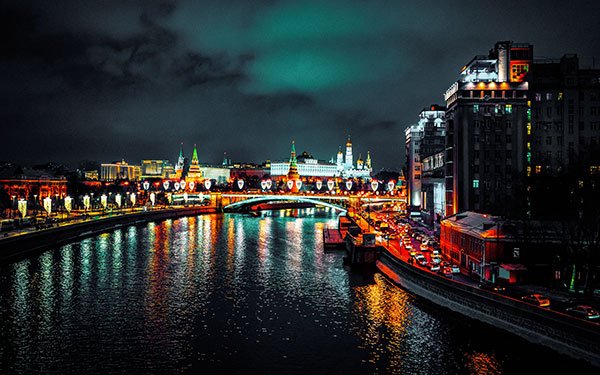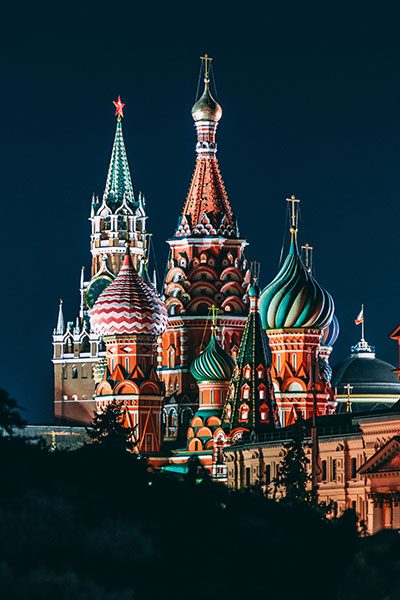Are you considering moving to Russia from the UK?
With cities crowned by colourful onion domed minarets, vast fairytale landscapes of lakes, mountains and forests, castles and palaces fit for a vampire, and more vodka than you ever thought possible, Russia is monumental in every sense of the word.
Mysterious, intriguing and intoxicating, this Eurasian country is rich in arts, religion and culture, and boasts a burgeoning youth culture which is breathing new life into contemporary scenes and stoking city nightlife up to frenzy levels.
Each part of Russia has its own distinctly individual charms, and there are a whole host of excellent reasons to live in this unique country — which explains why more and more expats are choosing to make Russia their home.
Let’s find out more…
Contents
Russia Visa Requirements for Brits
UK citizens must have a valid visa before stepping foot on Russian soil, and the country’s notorious bureaucracy can make things a little tricky when trying to get hold of one, so it’s essential to plan ahead.
Apply for your visa well in advance as visas usually take between 4 to 6 weeks to be issued, and anyone over the age of 12 must visit a visa application centre to submit fingerprint scans as part of the application process.
Ensure that your passport is valid for at least 6 months after the expiry date of your visa.
Want to know more about Russian visas for Brits? Read on…
Visiting
A tourist visa is valid for stays of up to 30 days, allows a maximum of two entries into the country, and is not renewable.
As part of your tourist visa application you must supply a confirmed address where you will be staying during the length of your time in Russia.
Working
If you want to work in Russia you will need to apply for both a work visa and a work permit, which can be a lengthy and complicated process, and work permits for foreign nationals are limited in number, so there’s no guarantee you’ll be successful with your application.
That said, Brits coming here to work on a temporary basis for an overseas company can apply for a Business Visa, which enables them to stay in Russia for business purposes for up to a year.
In the majority of cases though you will need a standard work permit and visa, which requires you to have a confirmed job offer from a Russian employer who is permitted to employ foreign nationals for specific jobs before entering the country.
The standard Russian work permit is valid for the length of the contract you have with your employer, but will need to be renewed each year for long term contracts. The work visa is initially valid for 90 days, but can be extended for up to 3 years.
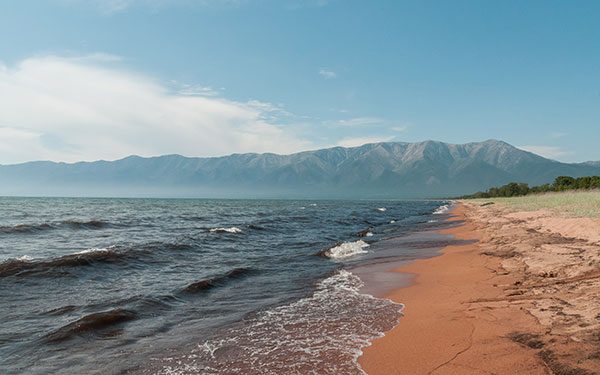
Permanent Residency
In order to become a permanent resident in the USSR, you will first need to become a temporary one. If you have been working in the country for at least 3 months, you are more likely to be granted a temporary residency permit, which is valid for 3 years.
In order to be successful in your application you will need a letter of support from your employer to the GUVM (the Russian immigration services).
Once you have held your temporary residency for 1 year or more, you can then apply for permanent residency. You must apply at least 6 months before the expiration of your temporary residence permit, and you will need to supply proof of sufficient income, a medical certificate, and proof of address — plus be able to demonstrate proof of proficiency in the Russian language, knowledge of Russian history and knowledge of the foundations of the Russian Federation.
If you pass the test your permanent residency permit is valid for 5 years, after which it can be renewed an unlimited number of times.
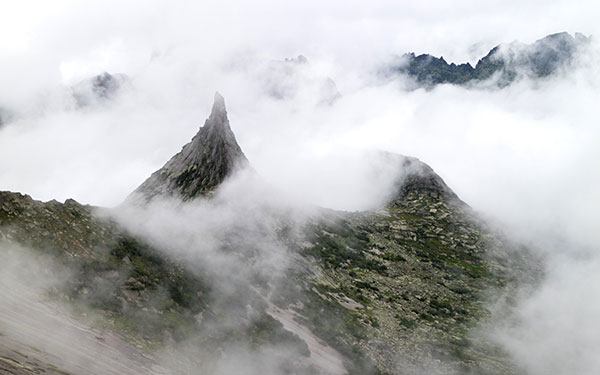
Way of Life in Russia
Lifestyle
Let’s face it. Russia can get a bad rap sometimes. But as with many destinations around the world, much of Russia’s negative image is based on myth and over exaggeration. So what’s the real deal?
The fact is that despite a certain amount of political tension there are plenty of expats happily living and working safely in Russia.
Political unrest is largely centred around the North Caucasus region or to the Crimea, and in those areas extreme caution is advised.
The rest of the country however is relatively safe, although it’s always best to remain vigilant, and avoid getting caught up in any public protests or demonstrations.
Be aware that right wing Russians can be both xenophobic and homophobic, but don’t let that colour your perceptions of the populace as a whole.
So now that we’ve dealt with the negatives, let’s take a look at the positives — of which there are many!
Russian people are very upfront about their opinions, and initially may come across as a little abrupt, but once you get to know them you will discover how welcoming they can be.
They’re extremely proud of their rich cultural heritage, and love to talk for hours about famous Russian creatives — preferably over multiple measures of vodka. You’d be best advised to learn some Russian however, as English is not widely spoken.
Russian cities are vibrant and cosmopolitan, with world class restaurants, massive shopping malls and quirky boutiques, oodles of museums, galleries, and theatres, and amazing nightlife.
Take a look at this video that goes behind the scenes of a life in Russia:
Come summer families and friends head to their countryside Dachas to spend time in nature — swimming, long walks in the forest, barbecues, foraging, boating, and fireside soirées are some of the favourite ways to relax and pass the time.
Indeed you’d be foolish to come to Russia and miss out on the breathtaking scenery and the opportunities for outdoor activities, such as climbing the 5640 metre high Mount Elbrus, hiking, horseback riding, or rafting through the sublime Altai region with its azure lakes, tumbling waterfalls, and lush forests, or tracking tigers in Siberia.
Getting Around
Covering the largest territory in the world, Russia spans 9 different time zones, so if you’re planning to explore far and wide one of the easiest ways to do this is by air.
Aeroflot is the biggest national carrier, although there are plenty of others to choose from which cover a wide variety of routes all over the country. Booking a ticket is easy, and flights generally offer good value for money.
Rail travel is another good option, as Russian trains are generally comfortable and relatively inexpensive. Trains are usually punctual but there are few high speed services — although this can be seen as a bonus as many rail routes are extremely picturesque.
It’s also possible to explore a large portion of Russia by boat — either on a cruise or by using scheduled river passenger services, although these services only operate in season between May to October.
Inner city transport offers a variety of options. The bigger cities have efficient and cost effective metro systems, which is perhaps the most convenient way to get around.
There are also frequent bus, tram, and trolleybus services, but these can get very busy at peak times. Weekly and monthly passes are available for public transport within cities, and offer a very affordable way to get around.
Alternatively take a taxi or hire an Uber. Taxis are generally ordered by phone, although some can occasionally be flagged down on the street, but be sure to negotiate your fee before setting off.
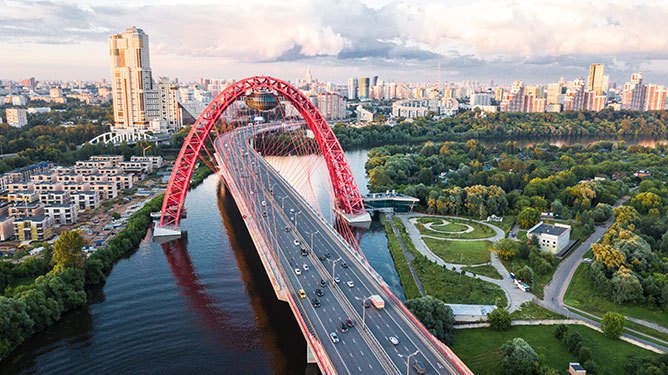
Driving in Russia
If you want to hire a car in Russia you’ll need an international driving permit in addition to your UK permit. It’s worth investing in a road map written in English, as road signs are strictly Russian.
In more rural areas road quality here has improved in recent years, but it’s still a bit of a case of pot luck.
Driver safety has also improved, but it’s still best to keep your wits about you, as the road safety record is still poor.
If you’re driving in or near the cities, don’t expect to get anywhere fast as there is heavy congestion. Police have the power to give on the spot fines at any time, and in more out of the way areas it’s not uncommon for police to set up roadblocks and demand bribes.
Vehicles drive on the right hand side of the road, and traffic coming from the right usually has the right of way. If you’re travelling with kids it is illegal for them to sit in the front seat unless they are more than 12 years of age.
Weather in Russia
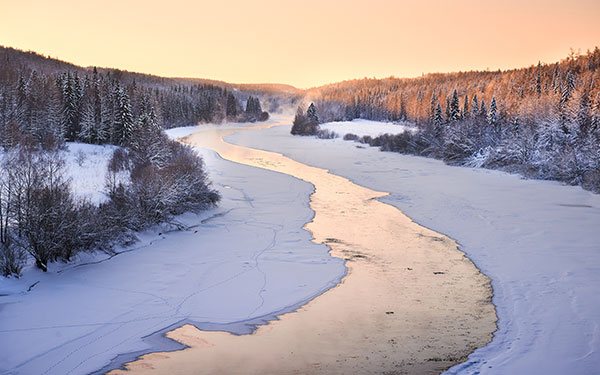
Russia’s climate can be challenging for expats.
It’s an immense country with different climates in different regions, which makes it complicated to generalise when it comes to the weather, but summers are generally warm and dry, and in winter things can get very cold and bitter indeed, with temperatures sometimes dropping as low as -30°C.
The mildest weather can be found along the Baltic coast, whilst the westernmost regions experience the heaviest rainfall.
The Russian Steppes in the southeast have the hottest, driest summers and very cold winters.
In the capital Moscow, the weather is relatively mild, with summer temperatures averaging out at around 22°C to 24°C, and winter temperatures descending to an average around -4°C. Moscow also experiences relatively low levels of precipitation, although rain can occur all year round.
Cost of Living in Russia
Lifestyle
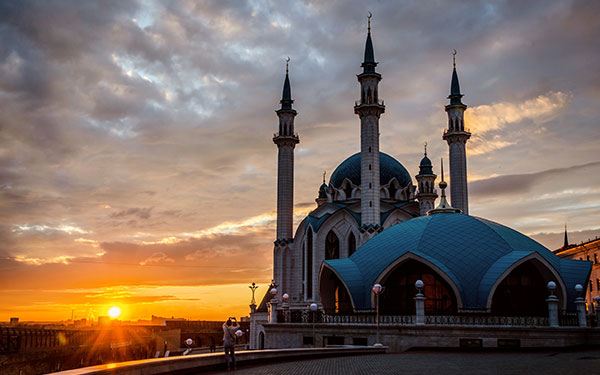
City living in Russia can be quite expensive, however this is often offset by attractive salaries offered to expats.
Recent surveys state that even Moscow and St Petersburg are around 50% less expensive on average than Paris or London.
Living outside the city centre is of course cheaper, but you’ll need to factor in your commuting expenses and time spent travelling to work.
As with anywhere else in the world, how much it costs you to live here will be dependent on how extravagant you want your lifestyle to be. Groceries in supermarkets are affordable, although the winter months can see a sharp drop in fresh fruit and vegetable supplies. Better quality or imported food and alcohol products are harder to find and come with a much higher price tag.
Public transport is efficient and affordable — certainly so if you invest in a monthly pass.
Eating out doesn’t have to be expensive, with many cafés offering cheap lunch deals, although if you want a slap up dinner in a high class restaurant you can expect to pay around £24 per person.
If you’re planning a night on the town, cinema and theatre tickets are affordable, and drinks in bars are generally cheaper than in the UK.
Rent
Accommodation is what usually takes the biggest bite out of most expats’ budgets, with a furnished 2 bedroom apartment in a decent area costing around £530 per month, but utilities tend to be reasonable, with an average being the equivalent of around £80 for a decent sized apartment.
Healthcare
Russia’s healthcare system is underfunded, overcrowded and outdated, although standards do vary from place to place, with Moscow and St Petersburg benefiting from some of the best hospitals available.
It is for this reason that the majority of British expats living in Russia choose to take out a private healthcare policy which gives them access to the best quality medical treatment available.
Private clinics and healthcare providers are better equipped with shorter waiting times and have English speaking doctors and medical staff.
Alternatively you can pay upfront at private clinics upon receiving treatment — the cost of a consultation with a GP or a specialist in a private international clinic is generally around £122, while an overnight stay in a private hospital costs around £431.
There are a wide range of private healthcare policies available so it’s well worth shopping around to get the best deal.
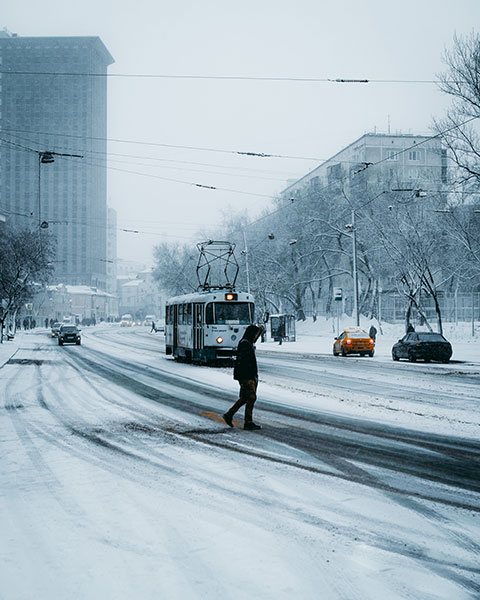
Schooling
If you’re thinking of moving to Russia with your little ones in tow, they will be entitles to free public schooling.
That said, the quality of education offered in public schools is poor, with overcrowding, inadequately trained teachers, and underfunding being the major offenders.
In addition, lessons are taught in the Russian language, which is often difficult for British children to adjust to, resulting in the vast majority of expats choosing to send their kids to private schools with an international curriculum more akin to that in the UK with lessons taught in English.
These schools offer a high quality of education, but waiting lists can be long, so it’s essential to apply well in advance.
They also come with a hefty price tag. Fees vary depending on the establishment, but as a rough guide expect to pay upwards of £10000 per year for preschool, upwards of £16000 for junior education, and around £18000 per year for secondary education.
Popular Areas for Brits
Moscow
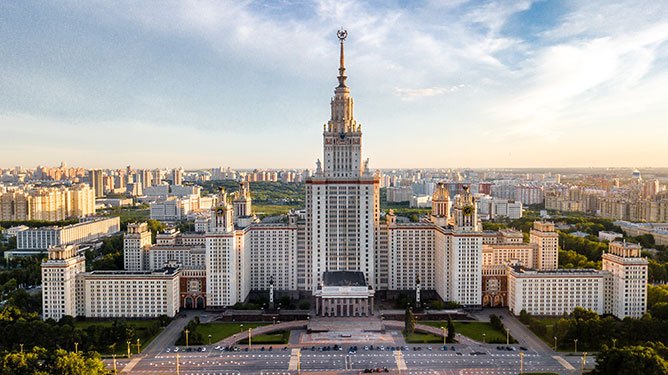
Simply spellbinding, Moscow is a city of history and culture — from the well known tourist attractions of the Kremlin and Red Square and exquisite architecture everywhere you look, to the myriad galleries, museums, and theatres.
Culture vultures will appreciate some of the best ballet and opera performances in the world on offer here — both classic and contemporary.
Gastronauts will revel in the world class restaurants, and for hipsters there are cool bars and chic hangouts aplenty.
St Petersburg
Russia’s one time capital is known as the Venice of the North due to its network of elegant canals which criss-cross the city and opulent Italian style mansions and architecture.
This decadent metropolis is steeped in culture, with both classic and contemporary arts and entertainment everywhere you look.
Midsummer brings the Summer White Nights when the sun doesn’t set and a heady party atmosphere is running high, bringing with it an abundance of festivals and high jinks.
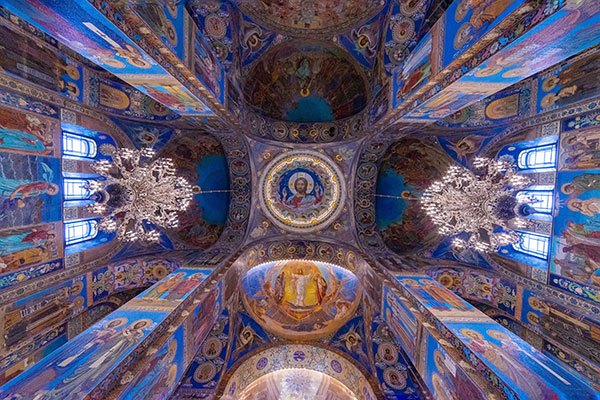
Yekaterinburg
Within easy reach of the incredible Ural Mountains — the gateway between Russia and Europe — Yekaterinburg is a relatively new city, born from a mining town and blossomed into a political capital boasting an incredible gourmet scene and a lively youthful culture with lots of bars, clubs, and live music venues to explore.
Krasnodar
Russia’s southern capital, Krasnodar was originally founded by Potemkin, Catherine the Great’s lover, in her honour.
Today it is a thriving city with pretty avenues dotted with bars, cafés, boutiques and restaurants.
This is a relatively calm city with a chilled atmosphere and plenty of leafy parks as well as museums and theatres to entertain.
Saratov
This one time fortress city situated on the majestic Volga river was initially founded in the 16th century to protect the Russian empire’s southernmost regions from attack.
It’s a laid back university city which combines the architecture of an old merchant town and the more contemporary, and there are numerous theatres and museums to explore, as well as leisurely strolls along the river banks.
Samara
Also built along the banks of the Volga river, Samara is one of Russia’s busiest transport hubs – but that doesn’t mean it’s not worth stopping off here.
The riverside is blissful, lined with lush parks, bars and restaurants which gives the city the feel of a resort town.
Stalin’s bunker is one of the major tourist attractions, as well as some impressive museums and galleries, and the restaurants here are second to none.
Jobs in Russia for British Expats
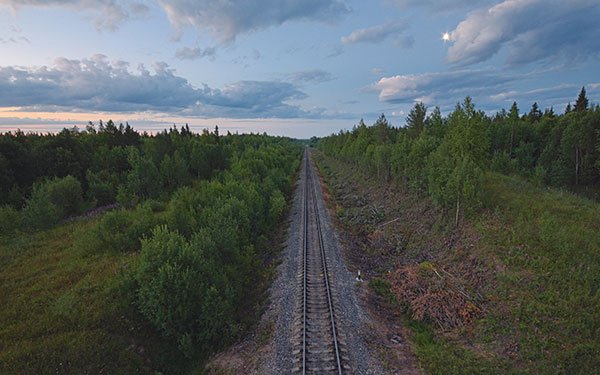
Russia is blessed with a fast growing economy, which is opening up increasingly greater work opportunities for British expats, with expats being some of the most highly paid professionals.
Moscow and St Petersburg are the cities with the most opportunities for foreigners — particularly those with experience in the construction, finance, business development, engineering, IT, and energy sectors or other specialist skills.
Due to the Russian government’s restrictions on the number of foreign workers that can be hired by Russian employers, the majority of job placements for Brits are with international companies.
Teaching English is another option, but teachers are generally not well paid.
Still considering a move to Russia from the UK?

